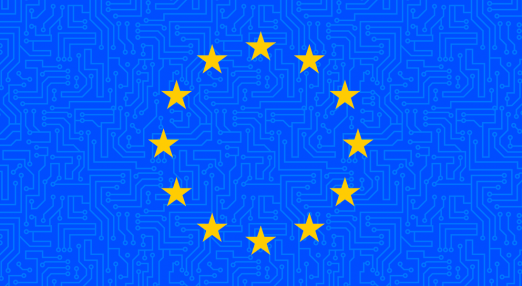The Data Governance Act – between undermining the GDPR and building a Data Commons
Compared to the DSA and the DMA, the DGA has received relatively little attention, both from the digital rights community and, seemingly, from industry stakeholders. So far, the discussion in the EP – where the Internal Market ( IMCO), legal affafirs (JURI) and civil liberties (LIBE) committees have issued opinions – has revealed relatively few clear faultlines.
Filter resources
-

The Data Governance Act – between undermining the GDPR and building a Data Commons
Compared to the DSA and the DMA, the DGA has received relatively little attention, both from the digital rights community and, seemingly, from industry stakeholders. So far, the discussion in the EP – where the Internal Market ( IMCO), legal affafirs (JURI) and civil liberties (LIBE) committees have issued opinions – has revealed relatively few clear faultlines.
Read more
-

All hands on deck: What the European Parliament should do about the DSA
After the European Commission’s proposal for a Digital Services Act (DSA) in December 2020, no less than seven committees in the European Parliament are now drafting their reports and opinions on the DSA. In parallel, member states are deliberating about the Council’s position, too. Yet, while the Commission has carefully tried to modernise the ageing rules of the E-Commerce Directive and make them fit for the platform economy, several of the committees’ draft reports propose—deliberately or not—to turn the DSA into a dystopian fundamental rights nightmare.
Read more
-

EDRi joins the Tracking-Free Ads Coalition in the European Parliament
Today, European Digital Rights (EDRi) together with 25+ other organisations joins the Tracking-Free Ads Coalition, led by Members of the European Parliament, as supporters. The coalition is made up of a group of 19 Members of European Parliament committed to ending the pervasive tracking and data mining that has poisoned online advertising across every corner of the internet.
Read more
-
Booklet: How online ads discriminate
The risks and harms that are associated with hyper-targeted online ads have been widely documented. Yet, the same amount of attention has not been shown to the many ways in which harms and risks of online advertising are unequally distributed, and how targeted online advertising can have discriminatory effects. This is the focus of EDRi’s newly launched report.
Read more
-

DSA should promote open and fair digital environment, not undermine the rule of law
The Rapporteur of the European Parliament Committee leading one of the most important legal initiatives to regulate platforms has spoken. The Internal Market and Consumer Protection (IMCO) Committee's draft report on the Digital Services Act (DSA) turns online platforms into judge, jury and executioner when it comes to removing online content. This follows the same logic as the Copyright Guidelines that were presented last week. It also gives vast powers to the European Commission and national governments to suppress opposing voices.
Read more
-

FLoC: Google’s new means of following you across the web
If you browse the web without an ad blocker, you will have noticed that the ads you see tend to follow you around. Have you been looking around for a new pair of shoes? Be prepared to see more ads for shoes on completely unrelated websites. This advertising technique is called "behavioural retargeting" and is built on recording your web history in a central place, then using that information to select ads that advertisers expect you are more likely to react to. In this article. EDRi's member epicenter.works sheds some light on Google's new way of tracking users across the web.
Read more
-

AdTech is watching you!
The reality is that AdTech target mothers who just had stillbirths with baby ads, and serial gamblers who are trying to quit with gambling ads, or simply send creepy ads.
Read more
-

Luca contact tracing app: CCC calls for an immediate moratorium
A dubious business model, defective software, irregularities in the awarding of contracts: EDRi member, Chaos Computer Club (CCC) demands an immediate end to federal funding for the “Luca” contact tracing app.
Read more
-

Buy a phone, get a tracker: unauthorized tracking code illegally installed on Android phones
EDRi's member noyb launched further action against Google’s AAID (Android Advertising Identifier), following similar complaints against Apple’s IDFA. The somewhat hidden ID allows Google and all apps on the phone to track a user and combine information about online and mobile behaviour. While these trackers clearly require the users’ consent (as known from “cookie banners”), Google neglects this legal requirement. noyb therefore filed a complaint against Google’s tracking code AAID.
Read more
-

Delete first, think later
The proposed Digital Services Act wants to push online platforms to quickly remove illegal content. But it uses a sledgehammer on a most intricate challenge: moderating online speech. The result would crush freedom of expression instead of enabling it. This is the second blog post in a new series dedicated to the EU’s proposed Digital Services Act and Digital Markets Act.
Read more
-

Targeted Online: How Big Tech’s business model sells your deepest secrets for profit
Surveillance-based advertising which is currently the business model used by Google, Facebook and many others is harmful to people and to society as a whole because it encourages the spread of disinformation. It's also bad for the media who lose control of their ad space and suffer from decreasing revenue as a result.
Read more
-

Booklet: Surveillance-based advertising: An industry broken by design and by default
Most online advertising today relies on huge amounts of personal data extracted from people without their knowledge. EDRi’s new guide book “Targeted Online” sheds light on this opaque data industry and explores how EU law should regulate it. This is the first blog post in a new series dedicated to the EU’s proposed Digital Services Act and Digital Markets Act.
Read more
